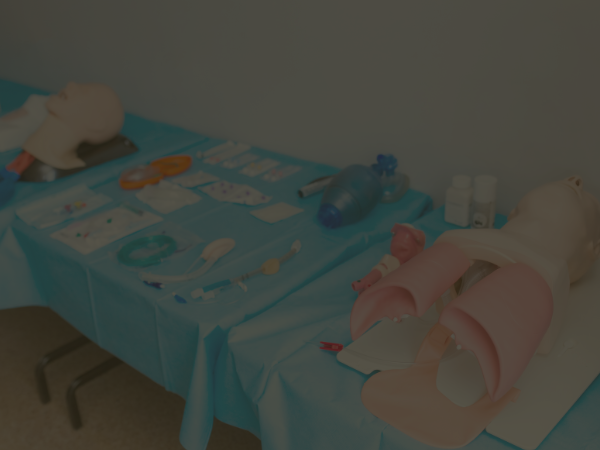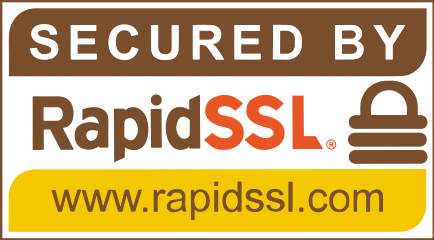 Cardiac arrest outside the hospital remains a major problem in the U.S. According to CPR.Heart.Org, cardiac arrest claims more lives—approximately 475,000 annually—than colorectal cancer, breast cancer, auto accidents, HIV, firearms, house fires, and prostate cancer combined. In addition, more than 350,000 cardiac arrests occur out of the hospital, and 10,000 occur in the workplace. To combat the risk of mortality, more employers require CPR and First Aid Certification, and in the health industry, advanced forms of training, including Advanced Cardiac Life Support (ACLS) and Pediatric Advanced Life Support (PALS) Certification, such as the course listed here, further reduce risk.
Cardiac arrest outside the hospital remains a major problem in the U.S. According to CPR.Heart.Org, cardiac arrest claims more lives—approximately 475,000 annually—than colorectal cancer, breast cancer, auto accidents, HIV, firearms, house fires, and prostate cancer combined. In addition, more than 350,000 cardiac arrests occur out of the hospital, and 10,000 occur in the workplace. To combat the risk of mortality, more employers require CPR and First Aid Certification, and in the health industry, advanced forms of training, including Advanced Cardiac Life Support (ACLS) and Pediatric Advanced Life Support (PALS) Certification, such as the course listed here, further reduce risk.
Unfortunately, online ACLS Certification and PALS options are not necessarily created equal. Some employers may accept online certifications; others do not. Moreover, the differences between course providers, including the International Liaison Committee on Resuscitation (ILCOR) and the American Red Cross (ARC) can leave prospective students feeling uncertain.
Add other course providers, including National Health Care Provider Solutions (NHCPS), to the equation, and finding the right course grows more complicated. Students and health professionals need an objective view of available PALS Certification and ACLS Certification options, especially online courses.
Reviewing the ARC and Its Available Online ACLS Certification Options
The ARC offers a range of online courses to meet the needs of nurses, ancillary health professionals, life-saving course instructors, business customers, teens and young adults, swimming, and more.
Benefits of Taking a Course Through the American Red Cross
Classes available at Redcross.org include both paid and free options. However, the ARC currently only offers 31 online courses. The remainder are in-person classes. In addition, the online courses have a strong focus on First Aid training.
For example, available First Aid classes include Wilderness and Remote First Aid, Anaphylaxis and Epinephrine Auto-Injector, and even Cat and Dog First Aid. The ARC also offers an online Adult, Child, and Baby First Aid, CPR, and AED course, Bloodborne Pathogens, and more.
All ARC online classes are self-paced. Costs range from free for the more simplistic courses to more than $100, depending on the specific course.
These courses may prove valuable to health professionals and the general public, but they have a few drawbacks.
Drawbacks
The drawbacks of taking an ARC online course are simple to see as a health professional. Most of ARC’s online courses are designed for either the public or health professionals that teach life-saving classes in a traditional classroom setting. These courses serve as a bridge for instructor requirements, not necessarily the requirements of students. In other words, an in-person instructor would need these courses to teach course participants, not the other way around, which effectively makes them insufficient for the needs of working health professionals.
The other major problem is the complete lack of an online BLS Certification, ACLS Certification, PALS Certification in the online course catalog. According to the Red Cross Course Cancellation Policy, cancellation refunds depend on the timing of cancellation and course method, such as online, in-person or hybrid courses.
For traditional and hybrid courses, students only receive a partial refund for classroom and hybrid classes.
If canceled between eight and 14 days in advance, the refund is 90%. If canceled between three and seven days, the refund is 75%. If canceled within 48 hours, the refund is 50%. If canceled on the day of the course or after it begins, no refunds are issued.
For online-only courses, the breakdown is slightly better. Any cancellation within 24 hours of purchase will be subject to a full refund. However, after 24 hours, no refunds are issued. Period.
Understanding the International Liaison Committee on Resuscitation’s Unique View of Online Certification
Compared to the ARC, the ILCOR offers courses to meet the needs of both health professionals and the general public. For instance, courses include Adult CPR, ACLS Certification, Bloodborne Pathogens, CPR and AED, First Aid, Opioids, PALS Certification, HeartCode, and more.
Benefits of ILCOR Course Participation
Courses provided by the ILCOR empower anyone to save lives, but they usually are required to complete the course in a traditional classroom setting. Students can purchase all course materials from the ILCOR online, and courses regularly use blended, hybrid learning. This frees students from the constraints of spending days in a physical classroom. The benefit is the same; less in-person training works better with busy schedules.
The other major benefit lies in the name recognition of the ILCOR. Most hospitals and health facilities recognize the ILCOR as a major accredited provider of advanced life-saving training. The organization has existed for decades, and it is among the most easily recognized course providers. That is where the benefits of taking a course through the ILCOR end.
Potential Drawbacks of Choosing the International Liaison Committee on Resuscitation as a Provider
The drawbacks to ILCOR courses are significant. The ILCOR offers three courses that can be completed fully online.
- Heartsaver® Bloodborne Pathogens.
- Achieving Accuracy: BP Measurement.
- Opioid Education.
As a result, health professionals that must maintain BLS Certification, ACLS Certification, PALS Certification or First Aid Certification will need to attend an in-person course through the ILCOR. That’s the only option for obtaining these mandated courses through the organization. For these three courses, costs range from $25 to enroll through $200 or more to purchase required course materials. Clearly, health professionals with limited time to take a class need an alternate solution.
The other drawback of an ILCOR course is the organization’s refund policy. According to the ARC, the ILCOR promotes an easy refund policy for 30 days on all merchandise. However, print products that have been opened are subject to a 15% restocking fee. Digital products, such as purchased online courses, that have not yet been activated are also subject to the 15% restocking fee. Activated products cannot be returned. Refunds for individual, in-person courses are subject to the terms of the instructor. Thus, the ILCOR does not issue refunds for in-person course cancellations.
Reviewing National Health Care Provider Solutions
National Health Care Provider Solutions (NHCPS) is unlike the ARC and ILCOR. As an independent course provider, NHCPS offers courses tailored to the health professional, including BLS Certification, ACLS Certification, and CPR, AED, and First Aid Certification, and even bundled discounts. Now, NHCPS does offer CPR, AED, and First Aid Certification for non-health professionals as well, making it perfect for employees of non-health organizations.
Benefits of Choosing NHCPS
 The benefits of choosing an NHCPS course are much more significant than the benefits of both the ARC and ILCOR. NHCPS courses are 100% online, relying on videos, digital course materials, and other media to instruct students. This creates an immersive experience, and students can move at their own pace through each course.
The benefits of choosing an NHCPS course are much more significant than the benefits of both the ARC and ILCOR. NHCPS courses are 100% online, relying on videos, digital course materials, and other media to instruct students. This creates an immersive experience, and students can move at their own pace through each course.
In addition, NHCPS offers For-Life Certifications, available here. These courses have a slightly higher cost, but they save money for health professionals. Students pay once, and when it is time for renewal, students simply return, revisit course materials, take the exam, and receive their certification.
Regardless of the course, students may print a digital provider card upon completion of the course. For those that require a physical, more official card, students may request a printed card upon completion that will arrive via USPS.
NHCPS does offer an extensive guarantee and hassle-free return policy too. If a student is unhappy with the course for any reason, NHCPS will issue a 100% refund. Of course, this policy does indicate that if physical materials were purchased, those would be refunded too, minus any shipping and material fees. This makes NHCPS the one company in this analysis to offer a refund for any course regardless of timing before or while completing the course. The policy does require students request a refund within six months of the date of purchase. This is a reasonable time and goes well beyond the 30-day limits, if not shorter, of the ARC and ILCOR-accredited courses.
Potential Drawbacks
The only drawback to NHCPS is the fact that while the organization has a 98% national acceptance rate, some employers may not accept the certification. This can be problematic, especially for students that are uncertain whether a given facility will accept ACLS Certification from an online-only training provider. However, this fact is why NHCPS created is 100% Money Back Guarantee. If your employer does not accept the certification, NHCPS will issue a refund. It is a hassle-free way to ensure your peace of mind.
Furthermore, NHCPS does recognize that as a smaller organization, it does not have the brand recognition of the ARC or ILCOR.
As a result, NHCPS created an Intro Letter to help prospective students introduce their employers to NHCPS. The letter is available on the Frequently Asked Questions’ page online, accessible here.
Tips for Selecting the Right Online PALS or ACLS Certification Course
Finding the right course to fulfill ACLS Certification or PALS Certification employer requirements can be difficult. To make it simpler, prospective students should follow these tips:
1. Review the Course Provider for Accreditation, If Available and Accessible
This is the most basic tip. Students should review the course provider for accreditation. Also, note that the ILCOR does not accredit any online-only program. However, employers may again set additional requirements for certifications that go beyond the ILCOR or other governing bodies. As a result, accreditation through the ILCOR is only valuable as a tool for employers. Employers may accept non-ILCOR accredited course certifications.
2. Take Time to Consider the Experiences of Past Participants
Reviewing the experiences of past students through social media is another excellent way to learn more about the course and determine if it is the right fit for you.
3. Assess the Course for Acceptability for Nursing CEU Requirements
Certain ACLS Certification courses and others may be applicable and fulfill nursing continuing education unit (CEU) requirements. The CEU requirements vary by state, says Nurse.Org. It is important for all nurses to review course acceptability for CEU requirements before enrolling. However, the courses are usually required for employment in certain departments, such as the ICU.
4. Consider Available Online Course Resources, Such as Pretests, Simulations, and Videos
Online courses may also include digital course materials and resources. Review materials for engagement and access before enrolling. For instance, a pretest might be the best way to determine if it is time to update your ACLS knowledge. The same applies to using simulations to improve.
5. Think About the Whole Picture, Including Other Courses Offered by the Same Provider That Go Beyond Immediate Needs
Even for students looking for a specific course, consider reviewing other available courses, such as Bloodborne Pathogens. These added courses can go a long way in helping you prepare for the next patient and expand your knowledge as well.
6. Determine Whether the Course Includes All Required Materials, Such as Workbooks and a Printable Certificate
Ensure the course includes all required materials, such as workbooks or a printable certificate. Keeping up with everything in one place will simplify course completion.
7. Ask, “Does the Course Require Completion in One Sitting
Online courses should be flexible. Look for courses that allow users to exit and return at their convenience.
8. Consider Cost of the Course
Lastly, always consider the cost of the course. While cost might not be a major barrier, it can vary widely. The internet makes it possible to make false claims about pricing and transparency, so always review the full cost and refund policies of any course before enrollment.
Select the Course That Aligns With Your Employer or Personal Needs
There is no right answer for which online or in-person course is right for everyone. Personal preferences vary, and employers may require certification from specific entities, including individual or local health facilities. The takeaway is simple; know what the requirements are for ACLS Certification for your unique employer. If online courses are acceptable, know the major differences between those published and managed by the American Red Cross and the International Liaison Committee on Resuscitation. Also, recognize that while these two entities have the brand power and history, other organizations, including NHCPS, offer additional, extensive course options for online students as well. The easiest choice is the simplest. Choose NHCPS for your next PALS Certification or ACLS course provider.
Have you ever taken an online ACLS Certification course from the American Red Cross or another online entity? If so, share your experiences and what you thought of the course, along with this article, to social media now. Also, remember to enroll in your lifetime ACLS Certification course with NHCPS, available here, to make sure you can review and renew your certification forever.







The Military has recently switched from AHA to ARC. I recently completed the online portion of the American Red Cross advanced life support class which is there equivalent to advanced cardiac life support from AHA, and I found the experience to be horrible. The online portion took 11 hours for the refresher course!! That’s not even including the hands-on portion! The whole point of switching to ARC from AHA was for providers like me who work in the ED and use these skills regularly to not have to spend a ridiculous amount of time away from patient care and theoretically to save the Military and in extension taxpayers a lot of money. I looked up the cost of both certs and here where I work, ARC ALS certs cost $210 where ACLS certs from AHA cost $125. I don’t think the Military is saving any money on this deal. I found there were errors in the material as well. I was constantly getting questions “wrong” for things I have to do in the ED. So many times in the chest pain workup section I got the question wrong because I ordered a chest x-ray when ARC said it wasn’t necessary! Really? You’re not going to get a chest X-Ray on pretty much every ACS work-up? Then in one section it specifically made the point that in a patient with a history of anxiety, ACS is not on the differential! Anxiety is a diagnosis of exclusion in the chest pain patient!! I got one question wrong for adding a CBC to the ROSC labs (which in the scenario would have been the first full set of labs). Why would I not order a CBC with that set of labs?! Then they went into deep rabbit hole detail on the oxygen dissociation curve and I find myself asking myself have I EVER contemplated the oxygen dissociation curve during a code? I mean maybe in like a tox case of like carbon monoxide poisoning, … maybe… but basically NOPE. Another question asked for what meds I would definitely give a patient with a right-sided or posterior MI and 1 of the required meds was nitro!! SMH. That’s the one you specifically DON’T give in that situation because they are pre-load dependent.
Basically, I much prefer the AHA course. It’s cheaper, more accurate, and it’s the gold standard. The ARC course is the new shiny, but it’s not geared for ED providers and there are too many errors. Just my opinion.